第40章 Chapter Five(1)
It was a Sunday in February, an afternoon when the snow was falling.
They had all, Monsieur and Madame Bovary, Homais, and Monsieur Leon, gone to see a yarn-mill that was being built in the valley a mile and a half from Yonville. The druggist had taken Napoleon and Athalie to give them some exercise, and Justin accompanied them, carrying the umbrellas on his shoulder.
Nothing, however, could be less curious than this curiosity. A great piece of waste ground, on which pell-mell, amid a mass of sand and stones, were a few break-wheels, already rusty, surrounded by a quadrangular building pierced by a number of little windows. The building was unfinished; the sky could be seen through the joists of the roofing. Attached to the stop-plank of the gable a bunch of straw mixed with corn-ears fluttered its tricoloured ribbons in the wind.
Homais was talking. He explained to the company the future importance of this establishment, computed the strength of the floorings, the thickness of the walls, and regretted extremely not having a yard-stick such as Monsieur Binet possessed for his own special use.
Emma, who had taken his arm, bent lightly against his shoulder, and she looked at the sun's disc shedding afar through the mist his pale splendour. She turned. Charles was there. His cap was drawn down over his eyebrows, and his two thick lips were trembling, which added a look of stupidity to his face; his very back, his calm back, was irritating to behold, and she saw written upon his coat all the platitude of the bearer.
While she was considering him thus, tasting in her irritation a sort of depraved pleasure, Leon made a step forward. The cold that made him pale seemed to add a more gentle languor to his face; between his cravat and his neck the somewhat loose collar of his shirt showed the skin; the lobe of his ear looked out from beneath a lock of hair, and his large blue eyes, raised to the clouds, seemed to Emma more limpid and more beautiful than those mountain-lakes where the heavens are mirrored.
"Wretched boy!" suddenly cried the chemist.
And he ran to his son, who had just precipitated himself into a heap of lime in order to whiten his boots. At the reproaches with which he was being overwhelmed Napoleon began to roar, while Justin dried his shoes with a wisp of straw. But a knife was wanted; Charles offered his.
"Ah!" she said to herself, "he carried a knife in his pocket like a peasant."
The hoar-frost was falling, and they turned back to Yonville.
In the evening Madame Bovary did not go to her neighbour's, and when Charles had left and she felt herself alone, the comparison re-began with the clearness of a sensation almost actual, and with that lengthening of perspective which memory gives to things. Looking from her bed at the clean fire that was burning, she still saw, as she had down there, Leon standing up with one hand behind his cane, and with the other holding Athalie, who was quietly sucking a piece of ice. She thought him charming; she could not tear herself away from him; she recalled his other attitudes on other days, the words he had spoken, the sound of his voice, his whole person; and she repeated, pouting out her lips as if for a kiss--
"Yes, charming! charming! Is he not in love?" she asked herself;
"but with whom? With me?"
All the proofs arose before her at once; her heart leapt. The flame of the fire threw a joyous light upon the ceiling; she turned on her back, stretching out her arms.
Then began the eternal lamentation: "Oh, if Heaven had out willed it! And why not? What prevented it?"
When Charles came home at midnight, she seemed to have just awakened, and as he made a noise undressing, she complained of a headache, then asked carelessly what had happened that evening.
"Monsieur Leon," he said, "went to his room early."
She could not help smiling, and she fell asleep, her soul filled with a new delight.
The next day, at dusk, she received a visit from Monsieur Lherueux, the draper. He was a man of ability, was this shopkeeper. Born a Gascon but bred a Norman, he grafted upon his southern volubility the cunning of the Cauchois. His fat, flabby, beardless face seemed dyed by a decoction of liquorice, and his white hair made even more vivid the keen brilliance of his small black eyes. No one knew what he had been formerly; a pedlar said some, a banker at Routot according to others. What was certain was that he made complex calculations in his head that would have frightened Binet himself. Polite to obsequiousness, he always held himself with his back bent in the position of one who bows or who invites.
After leaving at the door his hat surrounded with crape, he put down a green bandbox on the table, and began by complaining to madame, with many civilities, that he should have remained till that day without gaining her confidence. A poor shop like his was not made to attract a "fashionable lady"; he emphasized the words; yet she had only to command, and he would undertake to provide her with anything she might wish, either in haberdashery or linen, millinery or fancy goods, for he went to town regularly four times a month. He was connected with the best houses. You could speak of him at the "Trois Freres," at the "Barbe d'Or," or at the "Grand Sauvage"; all these gentlemen knew him as well as the insides of their pockets. To-day, then he had come to show madame, in passing, various articles he happened to have, thanks to the most rare opportunity. And he pulled out half-a-dozen embroidered collars from the box.
Madame Bovary examined them. "I do not require anything," she said.